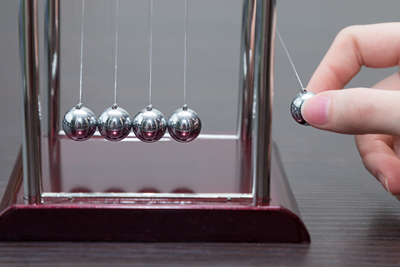This article analyses the landmark judgment on the limitation period for the execution of a foreign decree in India. The Supreme Court passed the ruling after carefully considering the differing views of High Courts on the matter. Thus, Section 44A was at the center of the debate for foreign decrees.

Recently, in a landmark judgment by the Supreme Court in the case of Bank of Baroda v. Kotak Mahindra Bank, the Apex Court has determined over the limitation period applicable for executing a foreign decree in India which is applicable under Section 44A of the Code of Civil Procedure, 1908 (CPC) . This decision was undertaken after due consideration of various other High Courts over the matter.
Under section 44A of the CPC, foreign decrees can only be executed in India if they have also been passed by any such superior court or a court of reciprocating territory in India. Such reciprocating territories and superior courts are usually notified by the Central Government from time to time and it is essential that only those decrees or judgments under which a sum of money excluding any taxes or other charges of a similar nature or a fine or other penalty, can be executed under Section 44A of the CPC. Furthermore, under section 44A, it has been profusely stated that in case a certified copy of a foreign decree has been filed in a District Court, the decree may be executed as if it had been passed by the District Court itself.
Since the decision by the Supreme Court has been brought about after several concurring as well as discerning views of the High Courts of various cities in India, it is important to analyse the given decision and the reason why it was brought about.
In the case of Sheik Ali v. Sheik Mohamed, it was the view of the Madras High Court that the effect of Section 44A was primarily only for making procedures for the execution of Indian decrees applicable in the same manner as to the foreign decrees as well. Under the statute, the limitation period for executing any Indian decree, which is given as, 12 (twelve) years from the date of the decree, does not apply to execution of a foreign decree under Section 44A. In the case of a foreign decree, what is applicable is the residuary provision, which is of 3 (three) years from the date on which the right to apply accrues. Furthermore, the right to apply accrues only after a certified copy of the foreign decree has been filed under a District Court in India. Moreover, even though there is no limitation period for filing a certified copy of the foreign decree as mentioned above, no foreign decree can be executed in India if its enforcement is barred by limitation under the given statute in the country (that is, the reciprocating territory whose court passed the decree).
In another viewpoint taken by the Punjab and Haryana High Court, it was ruled in Lakhpat Rai Sharma v. Atma Singh, that the effect of Section 44A is meant for treating every foreign decree as an Indian decree for every purpose. This basically means that the limitation period for making any application for the execution of an Indian decree, which is for 12 (twelve) years from the date of the decree, shall also apply to then application for the execution of a foreign decree under section 44A of the CPC.
These two contradicting viewpoints of the Punjab and Haryana High Court and the Madras High Courts were given due importance and credence before the Supreme Court made its ruling over the matter.
After analysing the situation as well as the rulings of both the High Courts, the Supreme Court adjudged that the applicable section 44A shall only empower district courts in the execution of the foreign decree as if the same had been ruled over by the said district court in itself and thus, the question for the limitation period shall not arise whatsoever. Hence, the given limitation period for making the application for the execution of an Indian decree, which is of, 12 (twelve) years from the date of the decree shall not apply to any application for executing a foreign decree under section 44A of the CPC at all. Instead, in the case of a foreign decree, the applicable limitation period can only be determined by the law of the said foreign country in itself (i.e. the reciprocating territory whose court passed the decree). It is to be noted that at the same time, the limitation period for making an application for executing a foreign decree in India is 3 (three) years from the date on which the said right to apply accrues. Furthermore, the Supreme Court stated the following over the aspect of when this right shall accrue. These are given below:
The decision of the Supreme Court over the matter is clear and straightforward and removes all ambiguities regarding the limitation period and its applicability over foreign decrees in general. However, certain aspects brought to light by the several district courts and the High Courts must also be considered in order to gain a better perspective over the matter.
The Supreme Court’s judgment in itself is inferred for better understanding now, even though the decisions and the perspectives taken by the other High Courts must also be given credence depending on the situation. Till that time, it is safe to assume the approach given by the Apex Court for foreign decree-holders to be able to make an application under Section 44A within three years from the date of the foreign decree or within the limitation period under law of the cause country, whichever is shorter. However, if the decree-holder takes steps to execute the decree in the cause country, then the application under Section 44A can be within three years from when the execution proceedings in the cause country are fully completed.
Copyright 2024 – Helpline Law - HLL001




